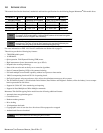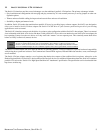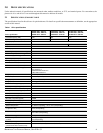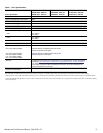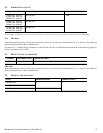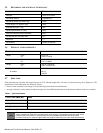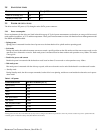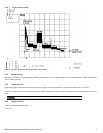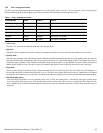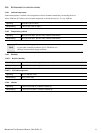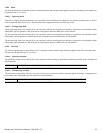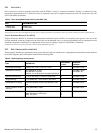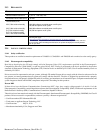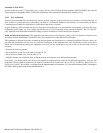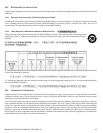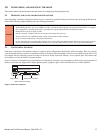
MOMENTUS THIN PRODUCT MANUAL, GEN-2 REV. G 10
2.9.5 Power-management modes
The drive provides programmable power management to provide greater energy efficiency. In most systems, you can control power
management through the system setup program. The drive features the following power-management modes:
• Active mode
The drive is in Active mode during the read/write and seek operations.
• Idle mode
The buffer remains enabled, and the drive accepts all commands and returns to Active mode any time disk access is necessary.
• Standby mode
The drive enters Standby mode when the host sends a Standby Immediate command. If the host has set the standby timer, the drive can
also enter Standby mode automatically after the drive has been inactive for a specifiable length of time. The standby timer delay is
established using a Standby or Idle command. In Standby mode, the drive buffer is in Self Refresh Low Power mode, the heads are
parked and the spindle is at rest. The drive accepts all commands and returns to Active mode any time disk access is necessary.
• Sleep mode
The drive enters Sleep mode after receiving a Sleep command from the host. In Sleep mode, the drive buffer is in Self Refresh Low
Power mode, the heads are parked and the spindle is at rest. The drive leaves Sleep mode after it receives a Hard Reset or Soft Reset
from the host. After receiving a reset, the drive exits Sleep mode and enters Standby mode with all current translation parameters intact.
• Idle and Standby timers
Each time the drive performs an Active function (read, write or seek), the standby timer is reinitialized and begins counting down
from its specified delay times to zero. If the standby timer reaches zero before any drive activity is required, the drive makes a transi-
tion to Standby mode. In both Idle and Standby mode, the drive accepts all commands and returns to Active mode when disk access is
necessary.
Table 4 Power management modes
POWER MODES HEADS SPINDLE BUFFER
Active (operating) Tracking Rotating Full power
Idle, performance Tracking Rotating Self refresh—low power
Idle, active Floating Rotating Self refresh—low power
Idle, low power Parked Rotating Self refresh—low power
Standby Parked Stopped Self refresh—low power
Sleep Parked Stopped Self refresh—low power



